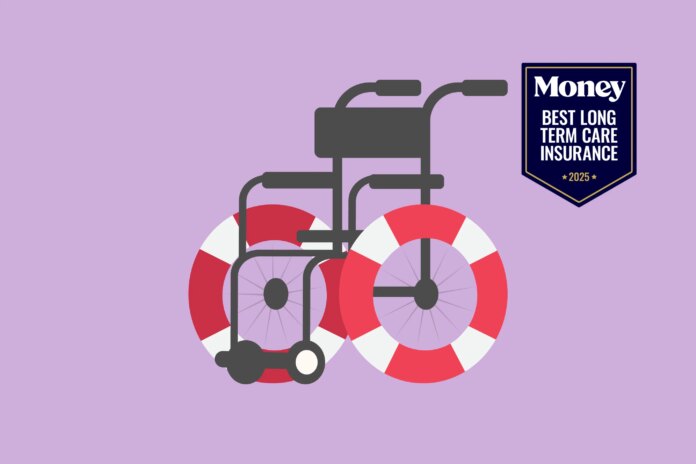Planning for long-term care is a critical step to secure your financial future, especially as costs for care like nursing homes or in-home assistance continue to rise. In 2025, whether you’re in Ghana, the US, Canada, or the UK, knowing how to avoid financial mistakes when preparing for long-term care can save you thousands and reduce stress. This beginner-friendly guide offers practical strategies to plan wisely, protect your savings, and ensure peace of mind. Let’s dive in!
Why Long-Term Care Planning Matters in 2025
Long-term care includes services like assisted living, nursing homes, or in-home care for those who need help with daily activities (e.g., bathing, dressing). With 70% of adults over 65 likely needing care, according to the U.S. Department of Health and Human Services, planning ahead is essential. Costs can range from $50,000 to $100,000 annually, making it easy to deplete savings without a solid plan. By learning to avoid financial mistakes, you can prepare effectively and protect your financial health.
5 Key Strategies to Avoid Financial Mistakes in Long-Term Care Planning
Here are five actionable tips to help you plan for long-term care without costly errors, tailored for Ghana, the US, Canada, and the UK.
1. Don’t Assume Government Programs Will Cover Everything
Many assume government programs like Medicare (US) or NHS (UK) fully cover long-term care, but they often don’t.
- How to Avoid This Mistake: Research what’s covered. In the US, Medicare covers short-term skilled nursing, not custodial care. In Ghana, check local insurance options, as public healthcare is limited for long-term care.
- Example: A US retiree budgets for in-home care, saving $20,000 by avoiding reliance on Medicare.
- Tip: In Canada, explore provincial programs, and in the UK, check local council support via GOV.UK.
- Best for: All regions, especially those nearing retirement.
- Resource: Pair with SmartMoneyMint’s personal finance tips.
2. Start Planning Early to Lock in Lower Costs
Waiting until your 70s to plan for long-term care can lead to higher insurance premiums or denial of coverage due to health issues.
- How to Avoid This Mistake: Begin in your 50s or early 60s when you’re healthier. Compare insurance options like traditional or hybrid policies via brokers like GoldenCare.
- Example: A UK couple in their 50s secures a policy for £100/month, saving 50% compared to later premiums.
- Tip: In Ghana, explore micro-insurance or savings plans through banks like Stanbic.
- Best for: US/Canada/UK residents seeking insurance; Ghanaians building savings.
3. Avoid Overpaying for Unnecessary Insurance Features
Long-term care insurance can be expensive, with premiums ranging from $900–$2,700 annually, per the American Association for Long-Term Care Insurance.
- How to Avoid This Mistake: Choose a policy that matches your needs. Opt for a shorter benefit period (2–3 years) if you have other savings, or skip inflation protection if costs are manageable.
- Example: A Canadian selects a 3-year benefit period, saving $500/year on premiums.
- Tip: Compare quotes from at least three providers to find cost-effective plans.
- Best for: US/UK users with retirement savings or Ghanaians with limited budgets.
4. Diversify Your Funding Sources
Relying solely on insurance or savings can be risky if costs exceed expectations or policies lapse.
- How to Avoid This Mistake: Combine insurance, personal savings, and assets like home equity. In the US/Canada, consider a Health Savings Account (HSA) for tax-free savings. In Ghana, invest in mutual funds via Databank.
- Example: A Ghanaian saves GHS 200/month in a Databank fund, covering 20% of future care costs.
- Tip: In the UK, explore equity release schemes for additional funds.
- Resource: See SmartMoneyMint’s investing for beginners guide.
5. Plan for In-Home Care Options
Assuming you’ll only need nursing home care can limit your flexibility and increase costs.
- How to Avoid This Mistake: Explore policies or savings plans that cover in-home care, which is often cheaper. In the US, check providers like Mutual of Omaha for flexible policies.
- Example: A UK retiree saves £10,000/year by choosing in-home care over a nursing facility.
- Tip: In Ghana, budget for local caregivers through community networks.
- Best for: All regions, especially those preferring to age at home.
Tools to Support Long-Term Care Planning
- Mint: Track savings and care budgets.
- Morningstar: Research investment options for funding care.
- YNAB: Budget for insurance premiums.
- ChatGPT: Explore care options via x.ai.
Common Mistakes to Avoid
- Ignoring Costs: Research local care costs to set realistic savings goals.
- Skipping Professional Advice: Consult a financial advisor to tailor your plan.
- Not Reviewing Policies: Check policy terms annually to avoid surprises.
- Underestimating Needs: Plan for at least 2–3 years of care, as most require it.
Tips for Success in Ghana, US, Canada, and UK
- Ghana: Save through local banks or micro-insurance; explore community care options.
- US/Canada: Use HSAs or low-cost robo-advisors like Wealthsimple to fund care.
- UK: Leverage ISAs or council support for care funding.
- All Regions: Start small savings now to reduce future insurance needs.
Why Avoiding Financial Mistakes Is Crucial in 2025
In 2025, avoiding financial mistakes when planning for long-term care protects your savings and ensures quality care. With rising costs and limited government support, proactive planning is key. Whether you’re in Ghana saving in cedis or in the US, Canada, or UK building a diversified plan, these strategies set you up for success. For more financial wisdom, explore SmartMoneyMint’s managing debt tips.
Planning for long-term care in 2025 doesn’t have to drain your finances. By avoiding common financial mistakes—like relying on government programs, delaying planning, or overpaying for insurance—you can secure your future in Ghana, the US, Canada, or the UK. Start with one tip, use free tools, and build a plan that works for you. Ready to take control? Check SmartMoneyMint’s personal finance tips for more ways to thrive financially!


